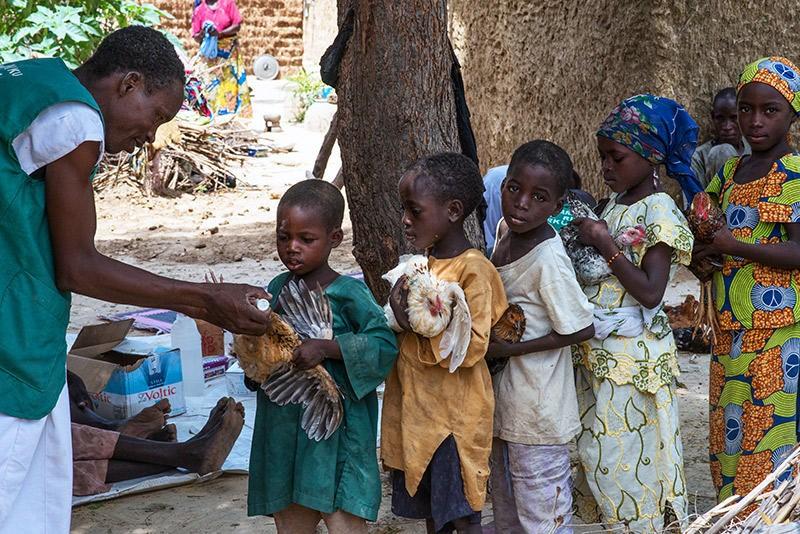- Home
- Worldwide
- CIRAD worldwide
- Projects
- LIDISKI project
LIvestock DIsease Surveillance Knowledge Integration to boost disease surveillance and control in Nigeria - LIDISKI

The training of local communities is an essential relay for the control and surveillance of animal diseases in rural areas © DFID/Propcom
Issues
Many Nigerian households are heavily reliant on livestock production, which is a source of both animal protein and income. Supporting the sector thus helps to boost the food security of those household, improve their quality of life, notably that of smallholders, and empower women, who are major players in the poultry and small ruminant value chains in particular. In this context, livestock diseases are a major issue. They are the biggest economic threat to the livelihoods of poor rural farmers and livestock owners. Peste des petits ruminants (PPR) is estimated to cause between $1.4 and $2.1 billion worth of damage in Nigeria every year, while Newcastle disease is highly virulent and can wipe out whole flocks of chickens, yet Nigeria does not have a truly operational surveillance and control system.
Description
The project supplies local stakeholders with the knowledge they need to adopt sustainable animal disease surveillance and control strategies. It particularly targets community animal health staff; veterinary services; the National Veterinary Research Institute; field vets; livestock, and particularly poultry, farmers; and private livestock firms.
It centres on four main activities:
- Training players to recognize the symptoms of PPR and Newcastle disease and collect and store the necessary samples and data.
- Involving field players in vaccination and disease reporting, through communication and awareness campaigns.
- Conducting Socioeconomic and epidemiological surveys focusing on PPR and ND distribution and impact, perception of disease and vaccination cost-benefits, gender-specific issues, and the impact of climatic events on livelihoods.
- Building on research results to develop decision support methods and tools to boost PPR and Newcastle disease surveillance and control on a national level.
Expected impacts
The project will have:
- Built technical skills among animal health players in terms of PPR and Newcastle disease surveillance and control,
- Helped laboratories produce effective vaccines against the two diseases,
- Disseminated new epidemiological and socioeconomic knowledge to the scientific community,
- Suggested guidelines and procedures to the Nigerian authorities with a view to extending the scope of the project's activities.
Contract partners
National Veterinary Research Institute (NVRI, Nigeria)
Istituto Zooprofilattico Sperimentale delle Venezie (IZSVe, Italy), Ikore International Development (Nigeria)























